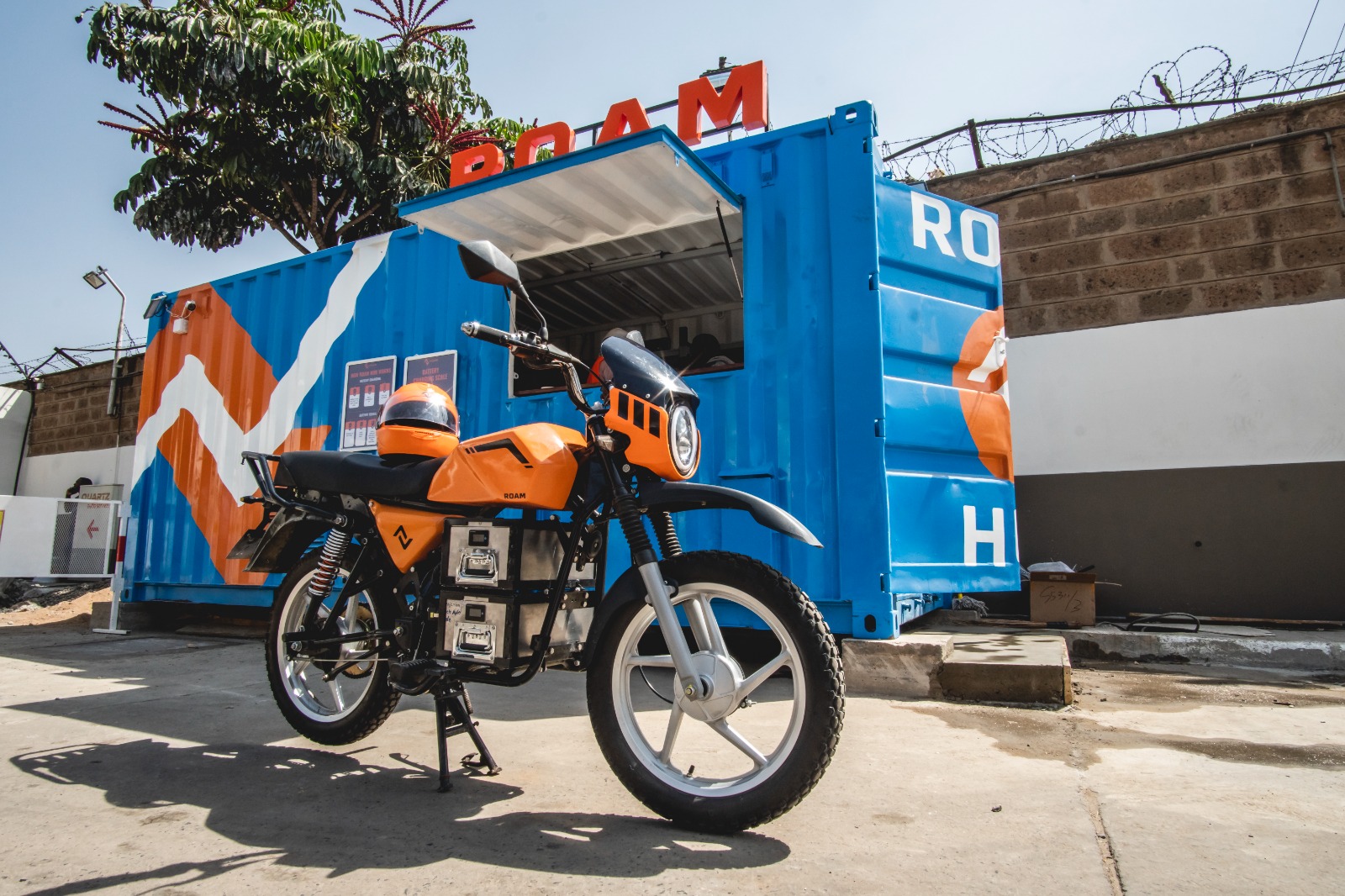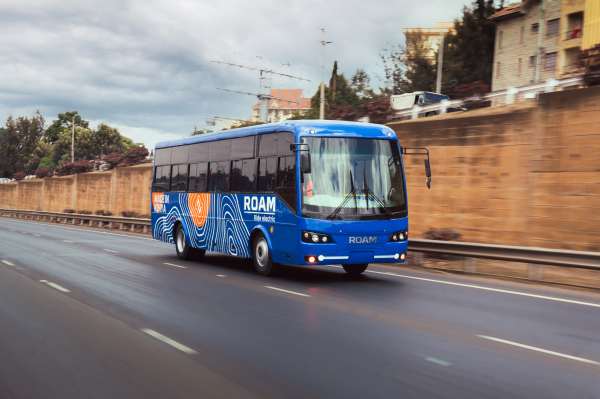Roam, an EV startup based in Kenya, has raised $24 million in a Series A round, including up to $10 million debt commitment from the U.S. International Development Finance Corporation (DFC), to scale the production of electric motorcycles and buses.
Equator, an Africa-focused climate tech VC fund, led the round, which also had the participation of several investors, including At One Ventures, TES Ventures, Renew Capital, The World We Want, and One Small Planet.
The investment comes as Roam doubles down on the assembly of its Move bus model, launched last year, months after the company set up a new and larger motorcycle assembly plant.
“The goal this year is to increase and get stability in terms of production to meet demand,” said Albin Wilson, Roam chief product and strategy officer. “We want to get to a production rate of 1,000 motorcycles a month, because we think that’s where we can start filling the market with the relevant amount of motorcycles.”

A Roam battery-swapping station. Image Credits: Roam
Roam has built a hybrid solution for its motorcycle clientele, meaning they can charge the batteries at home or at its swap stations.
Previously, Roam said it can assemble 40 Move buses a month at full production capacity. The 42-seater buses, with a range of 200 kilometers, are assembled in Kenya using parts from China and are targeted at schools and the public transit sector. Roam says the buses are built to fit local use and conditions, through such features as high ground clearances.
The company is looking to invest in research and tooling, too, as part of its plan to deepen the vertical integration of its products.
“We’re going deeper into owning more and more designs instead of buying off-the-shelf components. Right now, we have 275 purchase components, which means that we can really cut down margins on our suppliers, and in the long-term we can provide a cost-effective product to the market,” said Wilson.
Roam, which was founded by Wilson, Filip Lövström and Mikael Gånge, has been in Kenya’s electric mobility space since 2017. Prior to its 2021 shift to assembly, which came after significant VC backing, it specialized in EV conversions.
The startup plans to ramp up production as the push for the adoption of electric vehicles in Africa continues despite a number of challenges dampening the transition from fossil fuels, including weak electricity grids, insufficient charging infrastructure and hefty EV acquisition costs.
The setbacks notwithstanding, EV startups in Africa have been behind this gradual transition. BasiGo, for instance, has also been at the forefront of introducing commercial electric mass transport buses across Kenya’s capital, Nairobi, helping some operators transition to more environmentally friendly modes of transport.
Ampersand, based in Rwanda, is the other company serving the growing EV market, especially in Rwanda and Kenya. The company raised $19.5 million debt-equity funding at the close of last year to double down on the production of electric motorcycle batteries and expand its network of swapping stations in the two East African countries.
Serving the EV market are Kiri EV, Arc Ride, eBee, Ampersand, Spiro, Kofa, Ecobodaa and Stimaboda, startups that are behind new EV motorcycle brands and the growing battery-swapping network across key markets in Africa. These companies continue to see investor interest as the African climate sector generates sustained investor interest.
